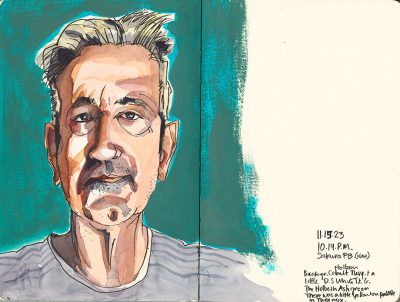
Recently one of my students wrote to me that she was hesitant about starting a new project.
Hesitancy springs from a lot of issues and conditions. Hesitancy can arise as resistance and part of the ongoing barrage of negative talk you might experience from your internal critic.
It can also exist because you have too much on your life’s plate and know you don’t have time for the type of project you want to execute.
Let’s break it down.
Your Internal Critic Is Piping Up—Saying You Don’t Have the Skills
We all dream and plan. Our dreams need to be large so we can stretch for them and have the greatest benefit when we work to achieve them.
But if you have an active internal critic you hear a constant voice telling you that your skills aren’t ready, that you’re worthless, that the project you plan is way beyond anything that you can do.
We all have to start somewhere. Remember, basically our skills are probably never really up to everything we see in our mind’s eye and we are always adapting.
That’s not a reason to not try. It’s a reason to push ourselves.
So if the hesitancy you feel about taking on a project comes from a negative voice (manifested sometimes as simple unease you feel in your body because it is so entrenched) telling you that you don’t have the skills, that’s when you need to step back and do a skill assessment.
Hypothetical Example
1. What is the project in specific terms—write out the specifics of the project, e.g., a plant-a-day painted and drawn in accurate scale and detail.
2. Then ask yourself what your current skill level is. Be honest, ruthlessly so. NOT NEGATIVE, but honest about your current skill level for that sort of approach—e.g., contour sketching that’s wonky at best. Or problems with proportion when sketching that will make the accurate scale component of the project difficult to achieve.
3. Now think about that honest assessment. How does 2 not agree with the parameters of 1?
For instance, if you’re going to draw in accurate scale and detail but your accuracy skills are wonky, then you don’t have the skills to do the project as envisioned.
4. You need to come up with a way to continue realistically on a project you can work in and succeed in—and in a way that ensures your growth and satisfaction. A slight shift in the parameters of your project will verbally rein things in. You can decide that you will do a project that is your effort to learn to draw more accurately in both detail and proportions. This subtle shift to the learning of accuracy and the learning to see detail and get detail down on the page is a huge departure from the insistence on a final accurate rendition you can’t yet achieve.
You can achieve attempts at learning that get you closer and closer. You can work on accuracy through your practice. You can work on proportion.
So now you sit down and write out the things you need to do to achieve the specifics in item 1 of the above list. These may include all the various skills, better drawing accuracy, color accuracy, etc.
Next you write out all the ways you can work on those skills.
The obvious way is to do a bit of research in some drawing books or through notes you have from a past drawing class and commit to doing your “learning” project focusing on the botanical subject matter you originally intended—but also following those tips for accuracy. (I find that really hunkering down and practicing contour drawing is a great way to work on accuracy. Additionally using your plumb lines and your horizontal lines to check alignment; and setting up something in your drawing to be a unit of measure you can build on; or working sight-size so you are working one to one and can immediately see when your proportions have gone off in comparison to the model or subject.)
And now THAT becomes your project.
Your intent is still to draw in accurate scale and detail a plant from life every day—but your mind is aligned now to focus on the process of developing accuracy from the point you’re currently at. And developing detail observation from the same starting point.
You’ve let go of the painting aspect because that complicates the process. You want to build accuracy. For now you’ll just draw. There will be time to do the project that involves painting, when your drawing improves.
Keep reminding yourself “for now.”
It’s not about depriving yourself, it’s about focusing your energies where you can make the most progress without distractions during the project.
You’ll be able to plan other projects when you finish this one. Those can contain painting aspects.
Other Reasons You Might Hesitate
Even with this analysis and an honest assessment of your current skills do you find you’re still hesitating to start the new project you’ve just adjusted and revised (which is doable)?
Why? Ask yourself.
Is it because your goals and expectations still don’t match your skill levels? (That’s possible because my example is pretty spare and there could be lots of aspects you need to whittle down.)
OR are you experiencing hesitancy to start the new project because you are having too much fun with another medium that you are currently “playing with” which dosen’t require the rigor you’re about to engage in?
If the first reason is what you face you know how to work with that—follow steps 1 through 4 above.
If the latter reason is holding you back you need to talk to yourself about how some “work” (pushing, stretching) is necessary to get where you want to go in your art.
How badly do you want to improve? Do you actually want to have an opportunity to finish a successful project? Do you want to build the skills that allow you to take on more complex projects?
Have a serious discussion with yourself about this. If you simply want to play, then play. But don’t then whine and grumble about how your project to complete detailed accurate drawings failed, or how your art is never improving, etc.
Don’t forget to factor in your health—you need to be honest about things like how long you can sit still and work, depending on your illness or injury. You do need to watch and take care of your energy and your body.
Also consider all the things (activities, hobbies, media, etc.) you are involved in currently. There is always the reality that sometimes to do one project we have to stop doing another activity while we do that project. And then we have to ask ourselves what it’s worth to us to put the one activity on hold while we pursue the project.
So think on that and take notes on it. And all of this. Because often we don’t see things until we write things out.
You have the ability to make the choices that will change this cycle of unfinished and unsuccessful projects.
Take a moment to write down your art goals.
If you’re normal your art goals will involve some stretch. How much stretch will be individual. You might want to see yourself posting or publishing illustrations, or selling in a gallery. That’s fine.
How do you get there?
Well you can set out realistic projects for yourself and work towards that goal and get there.
Or you can continue to play and dabble and feel frustrated year in and year out that your art isn’t changing.
Why do that to yourself?
Instead, follow through on items 1 through 4 and then remind yourself that it will be fun to do a focused project where you learn, improve your skills, and actually complete the process.
You might be a tiny bit afraid to try it because it’s a risk and you sense a possibility of “failure.”
So then what you have to remember is that we have to always risk and push in our art if we are going to grow.
And if we do that we aren’t experiencing failure—we’re succeeding in learning and growing our skills.
An honest assessment of our skill level will help us set up the project for success. We can recast a project so that the project is doable.
Besides focusing on the learning and practice aspect of the project I’ve already mentioned we can change other parameters of the project to make it more manageable where we currently are in our art journey. Instead of an 8 x 9 inch page each day, do a small 3 x 4 inch sketch on a 5 x 7 inch card for instance.
Look at the project specifics and see if there are ways to bring those slight changes about.
You make a promise to yourself that with the new goals, parameters, or just new understanding that it’s going to be tough, that you are now going to dive in and keep going as well as you can, pushing yourself, and get it done for the time frame that you’ve allotted.
This can be calendar time or it can be each day’s time allotment, or both.
And if things start to go to shit, really not even resembling what you set out to do, then you take a deep breath and pause one afternoon to do an assessment and ask yourself, what can I salvage from all this and still keep the project going? Can I do contour drawings instead of full realistic paintings, thumbnail sketches instead of full compositions, etc.?
And you do that for the remainder of the project.
But you finish the project. Each daily session. You meet as many of the original parameters, and the adjusted ones if necessary, as you can.
When you’ve finished, celebrate that you’ve finished.
Don’t listen to any internal or external voices that tell you the project was a failure.
It was a success in setting goals, realistically assessing on the fly, while in progress, adapting, and learning what you could for the remainder of the time.
That is a huge success. It’s something that many people don’t see because they give up, shut down, listen to their internal critic. But you didn’t.
Give yourself a couple days on another project (which of course you planned a week before this one was due to end, so you could jump right back into a creative project.
And then get all your project materials you just finished out. Look at them with a fresh eye. Write down everything you notice in the first few 90 seconds or so of viewing each piece.
You’ll notice things that you really enjoyed doing and which worked. Write them down, even if it’s as simple as “that stroke under the nose is delightful.”
Your editing eye will also, during that time, work with your fresh eye and tell you all the SPECIFIC things that are off and need work, e.g., the proportion of the legs is off, the eyes are even across the face but don’t have the proper tilt, etc.
Write all that down. Those are the things you’ll work on. You may need to do some research to find a book that can help you work on those skills. You may need to take a class. At least now you know what skills you need to keep working on.
And here’s the payoff.
When you complete a few projects like that, each time realistically looking at your skills, setting the parameters, and having a bit of a stretch, you’ll see your skills improving.
Then in a couple months of supporting project development work (on skills) or maybe 8 months or a year—you’ll find yourself returning to the original project and realize that now you have the skills to do that original project.
If you don’t use your time now to build those skills and learn how to finish a project based on realistic assessment of your skills and your time commitments in life you’ll never be able to take a run at the original project.
So you can set yourself up to fail or you can support yourself to have an ongoing increase in skill and productivity.
Remember all the stuff we do, before we do the project we dream of doing, is the actual project of life. This stuff of learning and building up our skills, and learning to finish—all that process is where we not only do our skill learning, it’s where we do our emotional and intellectual learning as well.
If through all this you stay interested in your original concept it will be there when you’ve had a couple of slimmed down, simplified runs at it. By the time you return to your original, more complex, skill-driven project you’ll have built the stamina and the skills to do the project closer to how you envision it.
Instead of hesitating and convincing yourself that you don’t have the skills to tackle a dream project today make a choice and do something to build the skills you need.
Even if you are ill, injured, or overwhelmed, you can find a way forward if you break things down realistically for yourself.
And if we focus on the process it all becomes part of the soup of projects we do all the time.
Go forward.
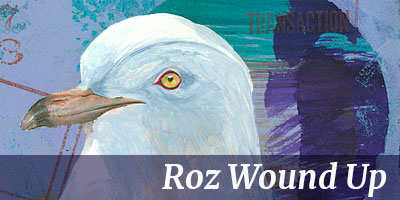
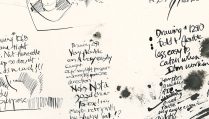

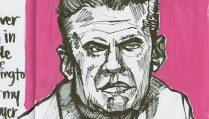



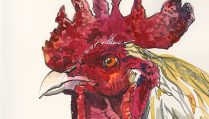
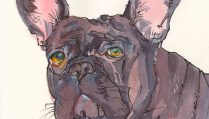
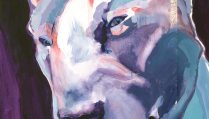

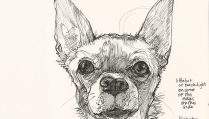

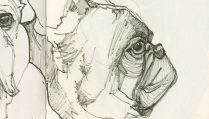
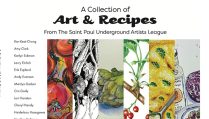

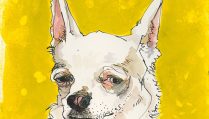


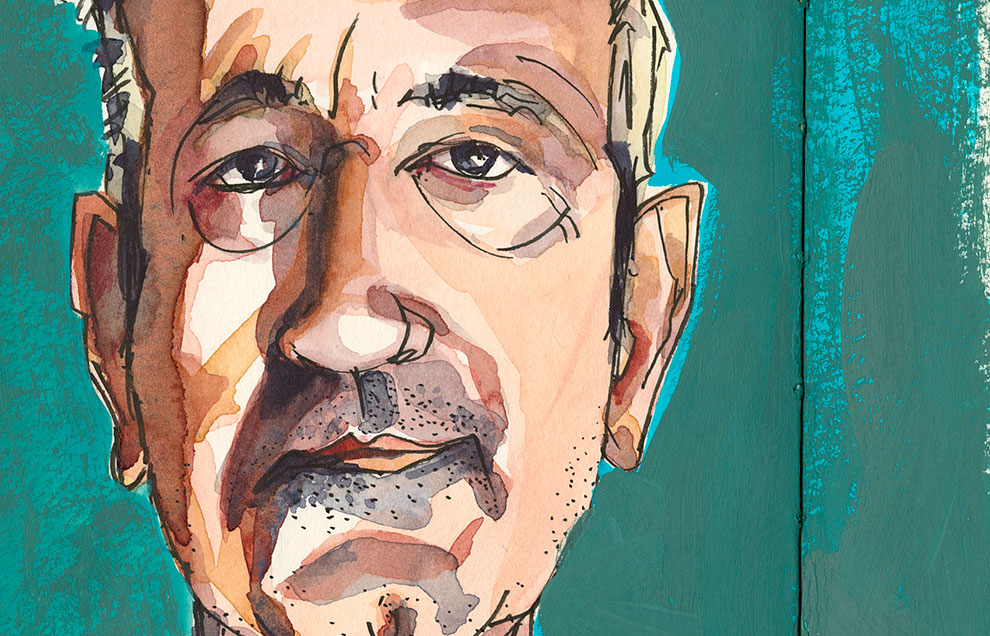
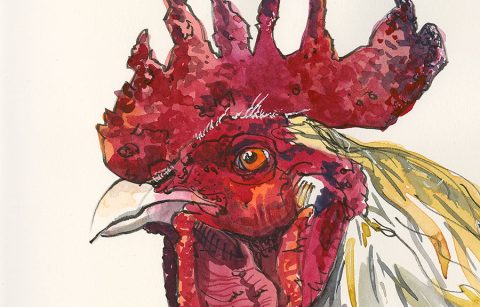
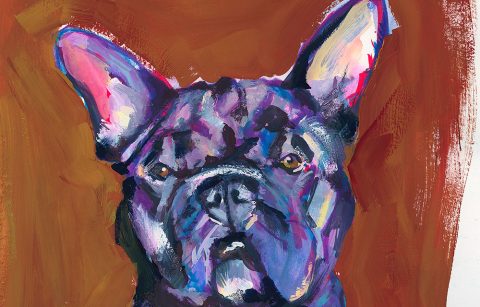

Just what I needed, Roz. Health challenges have gotten in my way lately, but then along comes another of your perfectly well reasoned examinations that provides me with the path back in.
You’re the best, you know.
Beverlee, I’m glad you found this post helpful and timely. I’m really sad to hear you’ve been having health challenges. I hope you can sit down in the next couple of days and think about your schedule and your health and find times to schedule a short drawing session every day. Find little things, and small moments that catch your mind and eye and journal about them and sketch. Five minutes, 15 minutes, whatever little time you can find. Get you daily habit back even in this small way. At the end of four weeks of doing this you’ll be able to look back and find the satisfaction of so much of your life down on paper. And that will help you make plans going forward. Good luck with this.
💙 I enjoy – and learn from – every one of your messages.💙
Thank You Very Much!
-g-
Thanks Georgy, I’m glad you found this post useful. Thanks for stopping by.